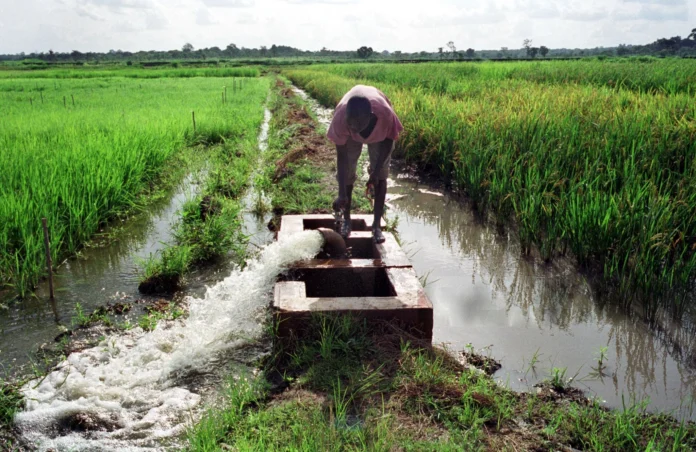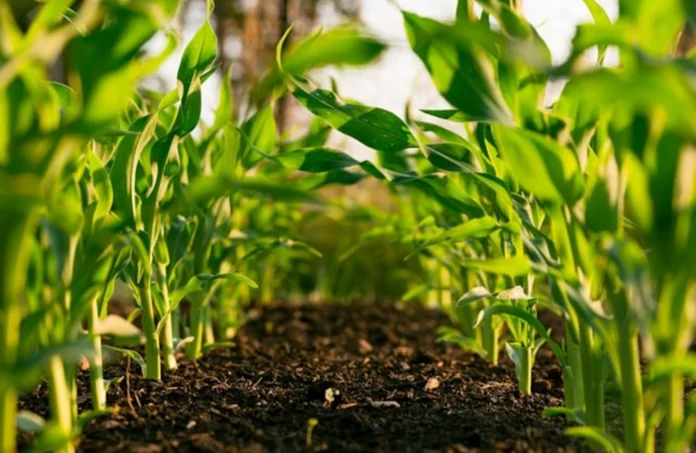Arabfields, USA — In a setback triggered by political gridlock in Washington, Unilever Plc has postponed the highly anticipated spin-off of its ice cream division, now branded as The Magnum Ice Cream Company (TMICC). The delay stems from the U.S. Securities and Exchange Commission’s (SEC) inability to process necessary filings during the federal government shutdown, which entered its 23rd day on October 23, 2025. Despite the postponement, Unilever remains optimistic about completing the demerger by year’s end, underscoring the company’s determination to streamline its operations amid broader economic pressures.
The announcement, made on October 21, 2025, highlights how the shutdown, sparked by congressional failure to pass a funding bill on October 1, is rippling beyond federal services into global corporate transactions. Unilever’s move to separate its ice cream unit, which includes iconic brands like Magnum, Ben & Jerry’s, Cornetto, Breyers, and Klondike, was originally slated for a November 10 listing. The business, valued at around €15 billion based on analyst estimates, was set for a primary listing on Euronext Amsterdam, with secondary listings on the London Stock Exchange and the New York Stock Exchange (NYSE). This multi-venue approach aimed to maximize investor access, particularly in the U.S., the unit’s largest market accounting for roughly 40% of its sales.
As of October 23, the shutdown shows no immediate signs of resolution, with Senate votes repeatedly failing to advance funding measures. The impasse, the first in nearly seven years and the third under President Donald Trump’s administration, has furloughed hundreds of thousands of federal workers and disrupted essential services, from aviation safety to economic data releases. Economists warn it could shave up to $15 billion weekly from U.S. GDP, amplifying investor unease about prolonged partisan strife.
At the core of Unilever’s decision is the SEC’s operational paralysis. The agency, responsible for reviewing and approving registration statements for public listings, has suspended such activities during the shutdown. Unilever explained that without SEC clearance, TMICC’s shares cannot be admitted to trading on the NYSE, a critical component of the demerger’s global strategy.
A Unilever spokesperson confirmed the company is exploring workarounds, including a SEC provision allowing registration statements to become effective automatically after a 20-day waiting period following the disclosure of deal terms. This mechanism, designed to facilitate initial public offerings (IPOs) during disruptions, introduces risks such as potential filing errors or market volatility during the extended timeline. Historically, shutdowns have deterred listings; for instance, during the 2018-2019 closure, several companies delayed or canceled IPOs. Unilever’s case is not isolated, biotech firm DeepGreenX Group recently withdrew its registration due to similar communication barriers with SEC staff.
The delay also affects Unilever’s planned share capital consolidation, approved by shareholders at a general meeting on October 21. This restructuring, intended to maintain comparability of share prices and earnings post-demerger, will now be rescheduled alongside the listing. Unilever emphasized that preparatory work remains on track, with a shareholder circular expected in October and prospectuses to follow shortly before the revised listing date.
News of the delay prompted a modest sell-off in Unilever shares, which fell as much as 1.1% in London trading on October 21 before closing down 0.8%, underperforming peers slightly. Year-to-date gains have been pared to less than 2%, reflecting broader market jitters amid rising interest rates and commodity volatility. Analysts, however, downplay the long-term impact. Anna Farmbrough, UK Quality Portfolio Manager at Ninety One, a Unilever investor, told Reuters: “We’re not concerned by the delay. The timing of the listing isn’t especially important in the broader context, what matters is the quality of the underlying business and its long-term growth prospects.”
Unilever’s third-quarter 2025 trading update, released concurrently, provided a counterbalance. The company reported underlying sales growth of 3.9%, driven by 1.5% volume and 2.4% price increases, with turnover at €14.7 billion. Excluding the ice cream unit, growth was 4.0%, signaling sequential improvement. CEO Fernando Fernandez highlighted broad-based performance: “We continued to outperform in developed markets in the third quarter, led by our strong innovation programme, and, following decisive interventions, stepped up our emerging markets performance.” The full-year outlook remains unchanged, with underlying sales growth projected at 3-5% and operating margins improving to at least 18.5% in the second half (19.5% excluding ice cream).
Unilever’s decision to divest its ice cream operations, announced in March 2024, is part of a broader restructuring to revitalize sluggish growth and focus on higher-margin categories like beauty and personal care. The ice cream unit, generating about €7.9 billion in annual revenue (16% of Unilever’s turnover), has faced patchy performance due to its seasonal nature, high production and storage costs, and external pressures like surging cocoa prices amid global supply shortages.
As a standalone entity, TMICC is positioned as a “world-leading business” with five of the top ten global ice cream brands, boasting strong positions in both in-home and out-of-home channels. Led by CEO Peter ter Kulve, the unit has optimized its supply chain, expanded global sales teams, and invested in innovations like premium flavors and plant-based options. Recent sales show improvement, with Q3 underlying growth of 3.7%, entirely price-driven amid flat volumes, fueled by double-digit gains in Cornetto and mid-single-digit in Ben & Jerry’s. The U.S. market, where brands like Breyers and Klondike dominate, has seen particular recovery, though challenges persist from health trends and regulatory scrutiny on sugary products.
Post-demerger, Unilever will retain a 19.9% stake in TMICC for up to five years, allowing an orderly sell-down to fund separation costs and maintain capital flexibility. Shareholders will receive one TMICC share for every five Unilever shares held, creating a simpler, higher-margin Unilever focused on “desire at scale” in premium segments.
The delay comes at a pivotal time for the consumer goods sector, where companies are grappling with inflation, supply chain disruptions, and shifting consumer preferences toward healthier alternatives. Unilever’s ice cream spin-off tests investor appetite for indulgent products amid the U.S. administration’s “Make America Healthy Again” initiative, which emphasizes reducing sugar consumption. Analysts anticipate the separation will unlock value, enabling TMICC to pursue agile growth strategies while allowing Unilever to accelerate in beauty and wellbeing, where Q3 sales rose 5.1%.
Looking ahead, Unilever’s productivity program is ahead of schedule, targeting €650 million in savings by year-end. Fernandez affirmed: “We expect to complete the Demerger of the Ice Cream business by the end of the year. This will create a simpler Unilever, with a sharper focus and structurally higher margin profile.” As the shutdown drags on, however, the episode underscores the vulnerability of international businesses to U.S. political dysfunction, potentially prompting calls for regulatory reforms to insulate markets from such events.
For TMICC, the independent future promises innovation and expansion, but success will hinge on navigating commodity volatility and evolving tastes. As one of the largest corporate separations in recent years, its resolution will be closely watched by investors and industry peers alike.












